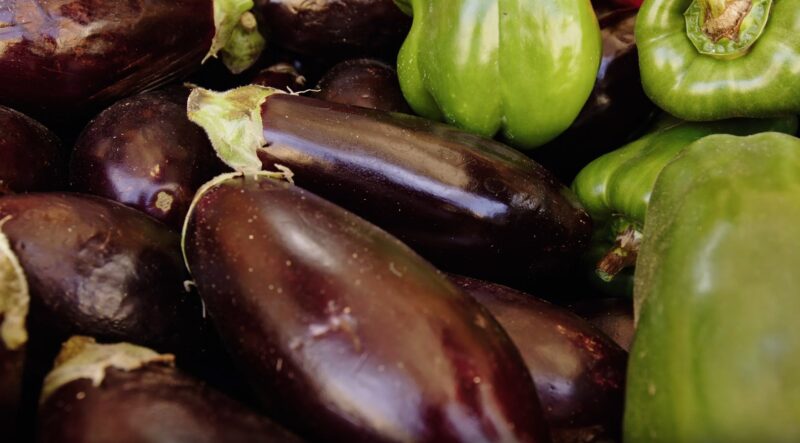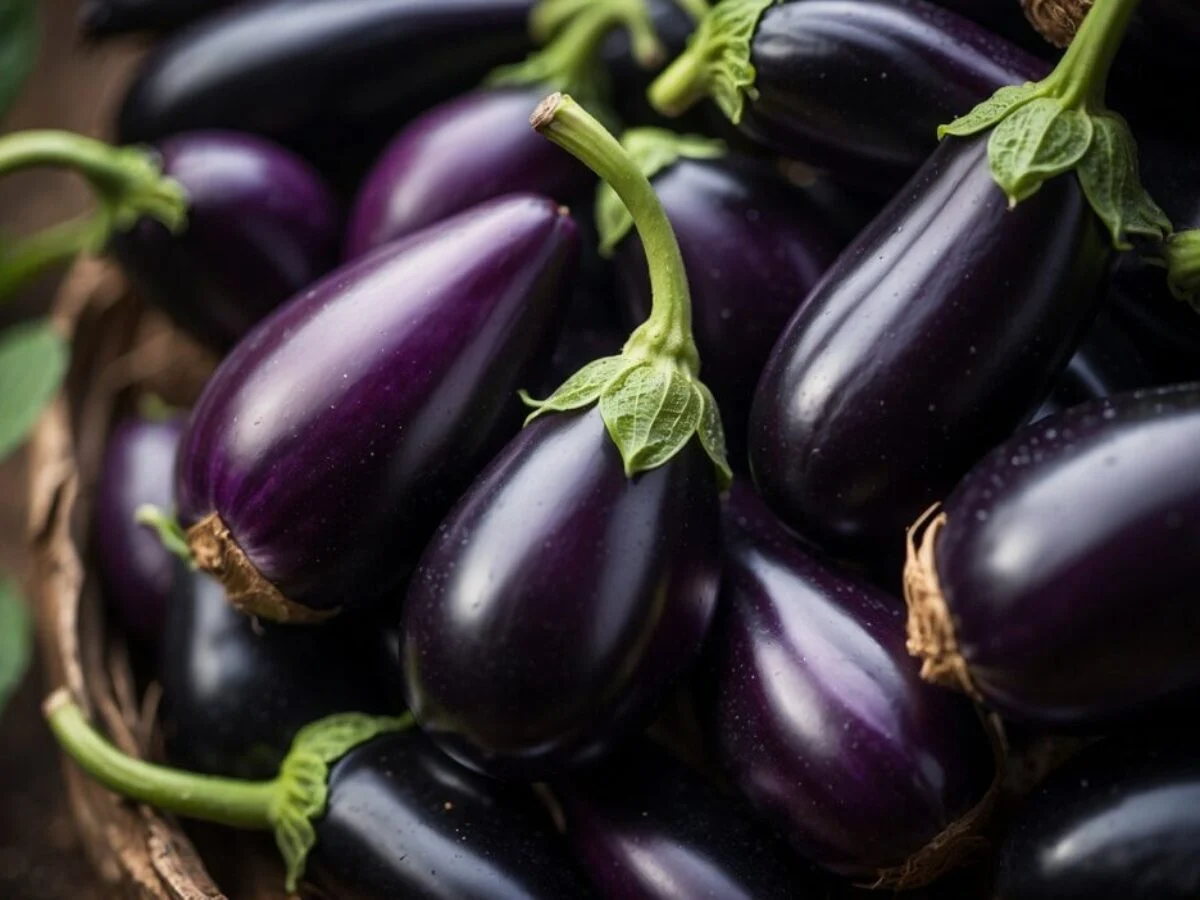Eggplants are a versatile and delicious vegetable that can be used in a variety of dishes, from stews and curries to grilled and roasted sides.
However, like many other fresh produce items, eggplants can quickly lose their quality and freshness if not stored properly.
Let me share with you how I store eggplants to keep them as fresh as possible.
The Ideal Storage Environment for Eggplants

Eggplants are a delicate vegetable that requires specific conditions to maintain their freshness.
The Recommended Temperature
Eggplants should be stored in a cool environment, ideally between 50-55°F (10-13°C).
The temperature range helps to slow down the ripening process and prevent the growth of bacteria and mold.
It’s important to note that eggplants are sensitive to extreme temperatures, so avoid storing them in areas that are too hot or too cold.
The Role of Humidity
Eggplants prefer a moderate to high humidity level, around 90-95%.
It helps to prevent the vegetable from drying out and losing its texture.
However, it’s important to balance humidity with proper airflow to prevent condensation, which can lead to spoilage.
Avoiding Direct Sunlight and Heat

Eggplants should be stored in a dark, cool place, away from direct sunlight and heat sources.
Exposure to sunlight and heat can accelerate the ripening process and cause the vegetable to become mushy and discolored.
Pros and Cons
Storing eggplants in the fridge is a popular method, but it’s not always the best option.
-
Extending Shelf Life
Refrigerating eggplants can significantly extend their shelf life, especially in hot and humid environments.
The cool temperature of the fridge helps to slow down the natural ripening process, which is crucial for preserving the eggplant’s freshness and delaying spoilage.
-
Slowing Ripening
The low temperature in the refrigerator slows down the enzymatic and metabolic processes that contribute to the ripening and eventual spoilage of eggplants.
That helps with maintaining the eggplant’s texture, flavor, and nutritional value for a longer period compared to storing them at room temperature.
-
Inhibiting Microbial Growth
Refrigeration creates an environment that is less favorable for the growth of bacteria, mold, and other microorganisms that can cause eggplants to spoil.
The cool temperature and reduced moisture levels in the fridge help to prevent the proliferation of these harmful microbes, thus extending the eggplant’s shelf life and ensuring food safety.
-
Sensitivity to Cold Temperatures
Eggplants are sensitive to prolonged exposure to cold temperatures, which can cause undesirable changes in their physical characteristics.
Refrigerating eggplants for an extended period can lead to discoloration, softening, and the development of pits or blemishes on the surface of the vegetable.
-
Increased Risk of Spoilage
The moist environment inside the refrigerator can actually increase the risk of spoilage for eggplants if they are not stored properly.
The high humidity can promote the growth of bacteria, mold, and other microorganisms that can accelerate the decomposition of the eggplant, leading to premature decay and a shorter shelf life.
-
Potential for Texture Degradation
The cold temperature of the refrigerator can also have a detrimental effect on the texture of eggplants.
Prolonged storage in the fridge can cause the eggplant to become mushy, and soft, and lose its characteristic firm, crisp texture, which is an important quality attribute for many culinary applications.
Alternative Methods for Storing Eggplants
In addition to refrigeration, there are several other methods for storing eggplants that can help to maintain their freshness.
Storing in a Cool, Dark Place
If you don’t have access to a refrigerator or prefer not to refrigerate your eggplants, storing them in a cool, dark place is an excellent alternative.
A pantry, basement, or cellar that maintains a temperature between 50-55°F (10-13°C) is an ideal storage environment.
The temperature range helps to slow down the natural ripening process, allowing the eggplants to stay fresh for a longer period of time.
Using Paper or Cloth Bags for Storage
Another effective method for storing eggplants is to use a paper bag or cloth bag.
These types of bags help to maintain a moderate humidity level, preventing the eggplants from drying out. The bag provides some protection against bruising and physical damage.
It’s important to leave the bag slightly open to allow for proper airflow and prevent the buildup of condensation, which can promote the growth of microorganisms.
Avoiding Washing Before Storage

It is crucial to avoid washing eggplants before storage, as this can increase the risk of spoilage.
The moisture from washing can create an environment that is more favorable for the growth of bacteria and mold.
Furthermore, the water can make the eggplant’s skin more permeable, making it more susceptible to damage and decay during storage.

